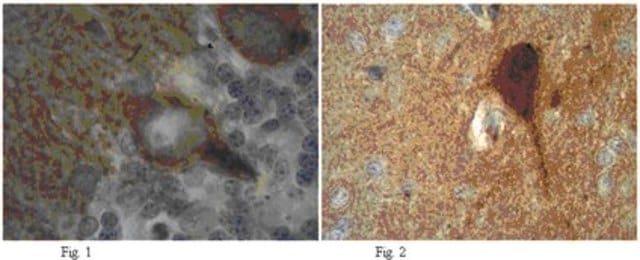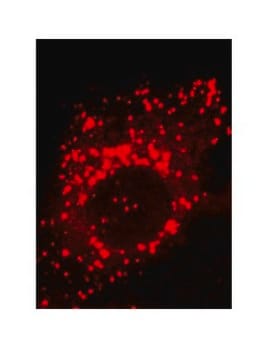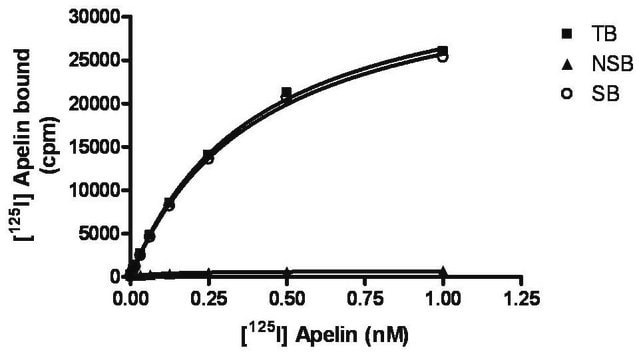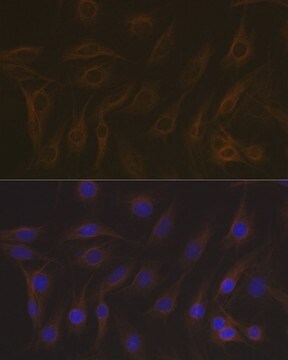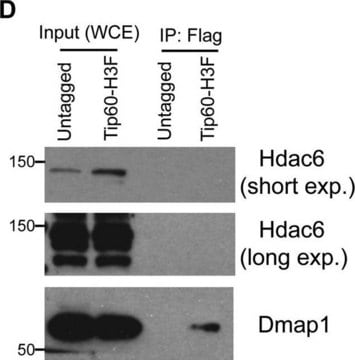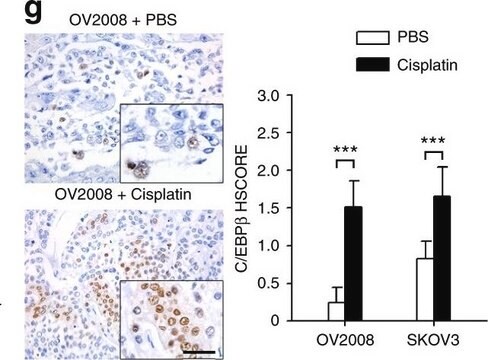MABS1300
Anti-asparagine synthetase Antibody, clone Z5808
clone Z5808, from mouse
Synonym(s):
Asparagine synthetase [glutamine-hydrolyzing], Cell cycle control protein TS11, Glutamine-dependent asparagine synthetase
About This Item
Recommended Products
biological source
mouse
Quality Level
antibody form
purified immunoglobulin
antibody product type
primary antibodies
clone
Z5808, monoclonal
species reactivity
human
technique(s)
ELISA: suitable
flow cytometry: suitable
immunocytochemistry: suitable
immunohistochemistry: suitable (paraffin)
western blot: suitable
isotype
IgG2aκ
NCBI accession no.
UniProt accession no.
shipped in
ambient
target post-translational modification
unmodified
Gene Information
human ... ASNS(440)
General description
Specificity
Immunogen
Application
Immunocytochemistry Analysis: A representative lot detected asparagine synthetase in Immunocytochemistry applications (Kusano-Arai, O., et. al. (2012). Hybridoma (Larchmt). 31(5):325-32).
Flow Cytometry Analysis: A representative lot detected asparagine synthetase in Flow Cytometry applications (Kusano-Arai, O., et. al. (2012). Hybridoma (Larchmt). 31(5):325-32).
ELISA Analysis: A representative lot detected asparagine synthetase in ELISA applications (Kusano-Arai, O., et. al. (2012). Hybridoma (Larchmt). 31(5):325-32).
Western Blotting Analysis: A representative lot detected asparagine synthetase in Western Blotting applications (Kusano-Arai, O., et. al. (2012). Hybridoma (Larchmt). 31(5):325-32).
Quality
Immunohistochemistry Analysis: A 1:50 dilution of this antibody detected asparagine synthetase in human breast cancer tissue.
Target description
Physical form
Other Notes
Not finding the right product?
Try our Product Selector Tool.
Storage Class Code
12 - Non Combustible Liquids
WGK
WGK 2
Flash Point(F)
Not applicable
Flash Point(C)
Not applicable
Certificates of Analysis (COA)
Search for Certificates of Analysis (COA) by entering the products Lot/Batch Number. Lot and Batch Numbers can be found on a product’s label following the words ‘Lot’ or ‘Batch’.
Already Own This Product?
Find documentation for the products that you have recently purchased in the Document Library.
Our team of scientists has experience in all areas of research including Life Science, Material Science, Chemical Synthesis, Chromatography, Analytical and many others.
Contact Technical Service

